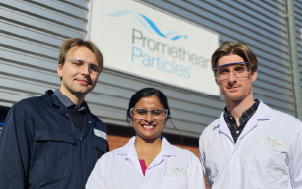Leading Application for MOFs
Biogas Upgrading
Transforming organic waste into renewable fuel
As global urbanisation and consumption continue to rise, the demand for food and livestock production, along with expanded urban infrastructure, is generating ever-increasing volumes of organic waste. Rather than being discarded, these waste streams can contribute to a circular economy through the production of biogas and its subsequent upgrading into high-quality renewable natural gas: biomethane. Producing biomethane from organic waste represents a vital step in decarbonising the energy sector while promoting sustainable waste management.
A Vital Pathway to Decarbonising the Energy Sector
Biogas is produced via anaerobic digestion, a biological process in which microorganisms break down organic matter in the absence of oxygen. This process can utilise a wide range of biodegradable feedstocks, including animal manure, food waste, sewage sludge, crop residues and organic municipal waste.
The resulting raw biogas primarily consists of methane (CH₄) and carbon dioxide (CO₂), along with impurities such as hydrogen sufide (H₂S), water vapour, oxygen, nitrogen and siloxanes. This mix of impurities and CO₂ limits the direct use of biogas as a fuel.
Upgrading raw biogas involves removing CO₂ and other contaminants to increase the methane concentration to over 95%. The resulting biomethane is a high-quality, renewable gas suitable for injection into natural gas grids (further processing may be required in some regions to meet grid specifications); for use as a vehicle fuel; or in high-efficiency combined heat and power (CHP) systems.
Among the emerging technologies for biogas upgrading, metal-organic frameworks (MOFs) stand out. These highly porous materials are ideal for adsorbing and separating CO₂ from biogas, which is a key step in upgrading it to biomethane.
MOFs for Biogas Upgrading
The remarkable properties of metal-organic frameworks are placing them at the forefront of technologies designed to produce high-purity biomethane from raw biogas.
MOFs’ lattice structures, ultra-high surface areas, tunable selectivity and low regeneration energy make them ideal materials for next-generation biogas upgrading solutions.
Promethean Particles’ ability to manufacture MOFs at industrial scale represents a significant breakthrough—making their use in biogas upgrading not only feasible but also commercially viable.
BIOGAS UPGRADING NEWS
Promethean Particles Joins the World Biogas Association
Promethean Particles, a world-leader in the manufacture of industrial-scale, high quality, cost-effective...

Ready to discuss how Promethean Particles can help you with your next MOF-based challenge? Contact us to learn more.

